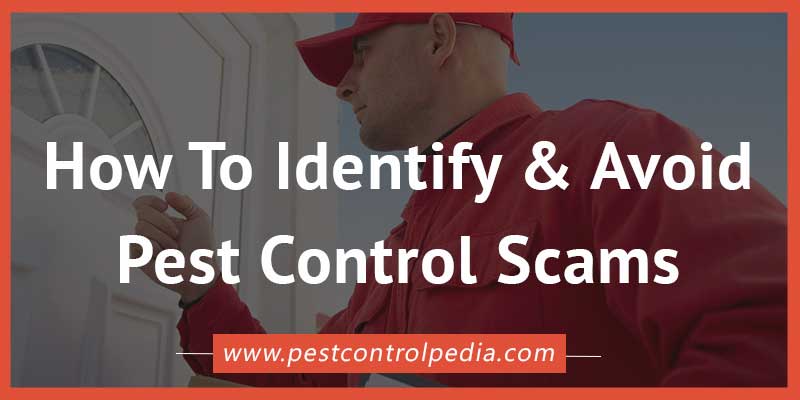Real Customers Expose the Dark Side of the Pest Control Industry
Pest control is a necessity for many homeowners, but what happens when the service you trust turns into a nightmare? Across the country, unsuspecting customers have fallen victim to pest control scams-losing money, trust, and peace of mind. In this blog, we share real customer stories of pest control fraud, highlight common red flags, and provide actionable tips to help you avoid becoming the next victim of a pest control scam.
The Rise of Pest Control Scams: Why You Should Be Concerned
Pest control scams are on the rise, with deceptive companies using aggressive sales tactics, hidden contracts, and misleading promises to trap customers. These scams not only cost homeowners financially but can also leave them with unresolved pest problems and a lingering sense of betrayal.
Real Customer Story: When Pest Control Goes Wrong
1. The Door-to-Door Deception
Caleb Scott, a resident of Rock Hill, shared his shocking experience with a door-to-door pest control salesman. Promised a one-time spray for just $49, Caleb agreed, only to find recurring charges on his bank statement weeks later. When he contacted the company, he was told he had unknowingly signed up for a year-long contract, with a hefty $200 cancellation fee. Caleb’s story is not unique-over 250 similar complaints were filed against the same company in just one year, with customers reporting dishonest sales reps and hidden contracts.
“I was assured this was a one-time fee. Not okay. We need to make sure companies are adhering to business ethics.”
- Caleb Scott, victim of a pest control scam
2. The Bait-and-Switch Contract
Many customers report being offered a low-cost introductory service, only to be locked into expensive, long-term contracts. These contracts are often buried in fine print or sent via email after the service, with customers unknowingly “agreeing” by clicking a link. When they try to cancel, they’re hit with unexpected fees and aggressive collection tactics.
3. The Phantom Service
Some pest control scams involve companies claiming to provide services they never actually perform. Customers are billed for treatments that never happened, or for unnecessary “follow-up” visits. In some cases, companies even fabricate evidence of infestations to pressure homeowners into signing up for expensive treatments.
Common Red Flags of a Pest Control Scam
To protect yourself from pest control fraud, watch out for these warning signs:
- High-pressure sales tactics: Scammers often push you to make immediate decisions, claiming discounts are “today only.”
- Unsolicited door-to-door offers: Legitimate companies rarely show up unannounced.
- Vague contracts or hidden terms: Always read the fine print and ask for a written agreement before allowing any work.
- Recurring charges after a “one-time” service: Double-check your bank statements and clarify billing terms upfront.
- Requests for large upfront payments: Reputable companies typically bill after the service is rendered.
How to Avoid Falling Victim to a Pest Control Scam
Protecting yourself from a pest control scam starts with being informed and vigilant. Here’s how:
- Research the company: Check online reviews, Better Business Bureau ratings, and customer testimonials before hiring any pest control service.
- Ask for credentials: Verify licenses, insurance, and certifications. Reputable companies will gladly provide proof.
- Insist on written contracts: Never agree to services without a clear, written agreement outlining costs, services, and cancellation policies.
- Understand your cancellation rights: In many states, you have a three-day window to cancel contracts signed at your home. Always act quickly if you change your mind.
- Don’t be afraid to say no: Take your time, compare quotes, and never feel pressured to sign on the spot.
What to Do If You’ve Been Scammed
If you suspect you’ve fallen victim to a pest control scam:
- Document everything: Save emails, contracts, receipts, and any communication with the company.
- Contact your bank: Dispute unauthorized charges and consider blocking further payments.
- File a complaint: Report the incident to your local consumer protection agency, the Better Business Bureau, and your state’s licensing board.
- Share your story: Leaving honest reviews and warning others can help prevent future scams.
Building Trust: What Honest Pest Control Companies Do Differently
Not all pest control companies are out to scam you. The best in the business:
- Provide transparent pricing and clear contracts.
- Offer detailed explanations of services and results.
- Encourage customer reviews and feedback.
- Respond promptly to complaints and resolve issues fairly.
When searching for a pest control provider, look for companies that prioritize customer satisfaction and ethical business practices.
Conclusion: Stay Vigilant and Informed
Pest control scams can happen to anyone, but by learning from real customer stories and staying alert to common red flags, you can protect yourself and your home. Always do your homework, trust your instincts, and demand transparency from any service provider. Don’t let a pest control scam rob you of your peace of mind-choose wisely, and share your experiences to help others stay safe.
Want to know more about how to choose a trustworthy pest control company or need tips on pest prevention? Ask your questions below!

Comments
Post a Comment